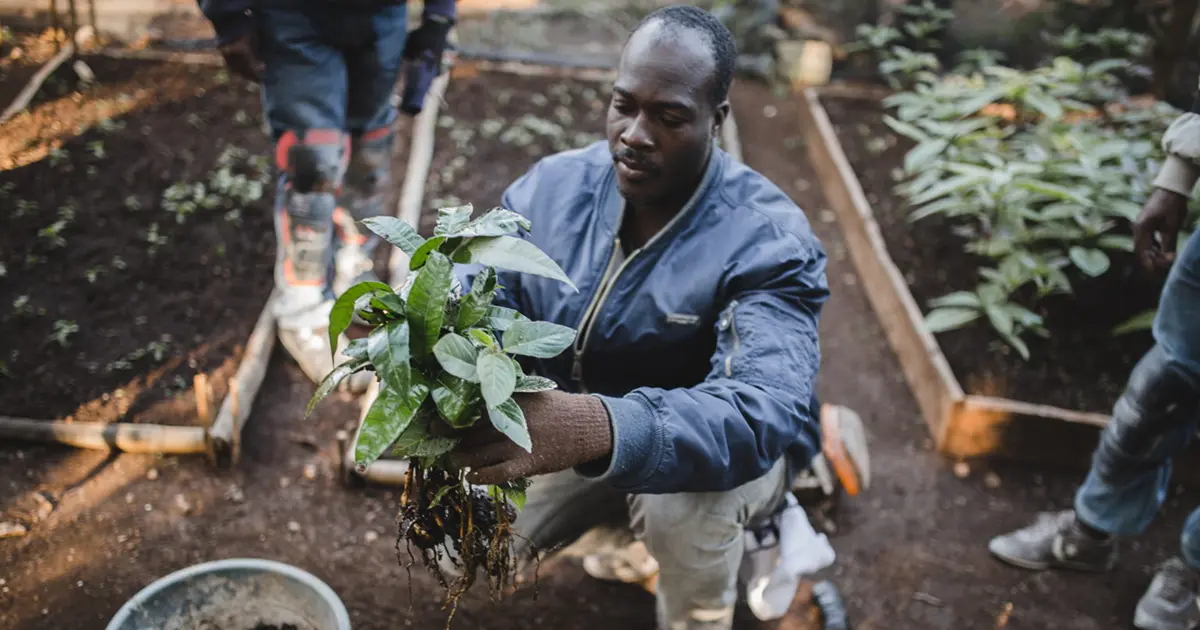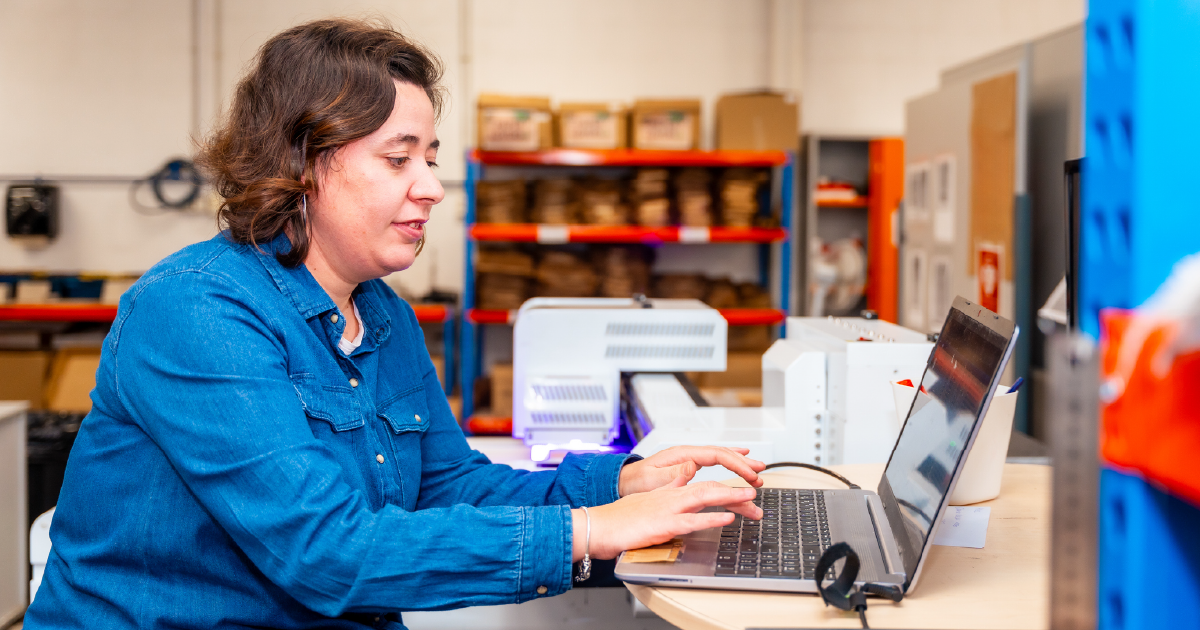Corporate social responsibility (CSR) takes many forms. But at its core, it’s about companies making a meaningful contribution to society and acting responsibly towards stakeholders and the wider community.
CSR initiatives range from organizing small community projects and advocating for social justice causes to developing comprehensive social and environmental sustainability policies.
What matters is that your CSR programs and initiatives create real impact, align with your business strategy and embed purpose into your culture.
In this article, we explore six standout corporate social responsibility examples from leading brands to provide inspiration on how you and your people can drive positive change in ways that are meaningful, strategic and scalable.
6 examples of companies paving the way in ethical business practices
Each of the following organizations is taking purpose-driven action to support their global and local communities for the greater good. Leverage their impact to inspire your CSR and philanthropic initiatives.
1. tentree: Tree planting and community projects

Corporate social responsibility is woven into the fabric of tentree, a Canadian sustainable clothing brand founded in 2012.
As the name hints, tentree plants 10 trees for every item sold. Upon purchase, customers receive a code for tracking where their trees are planted, which includes countries like Nepal, Canada and Indonesia.
tentree also undertakes community projects related to social causes like education, clean drinking water, job creation and sustainable development in the countries they plant trees in.
2. Patagonia: Sustainability and environmental impact
American outdoor clothing brand Patagonia is considered a CSR trailblazer. Since its founding in 1973, the company has been on a mission to “save our home planet” and inspire solutions to the environmental crisis.
It brings this purpose to life by reducing its environmental footprint, promoting clothing repair instead of replacement and donating 1% of sales to environmental organizations through its self-imposed Earth Tax.
And back in 2022, Patagonia founder Yvon Chouinard transferred ownership of the $3 billion company to the Holdfast Collective and the Patagonia Purpose Trust. These two climate-focused entities are dedicated to combating climate change and protecting undeveloped land around the world.
3. BNP Paribas: Employee volunteering and giving

French multinational bank BNP Paribas, has a strong commitment to corporate philanthropy and volunteering. A central pillar of the organization's CSR strategy is employee engagement and solidarity. To develop this, they give employees up to 16 hours (or two working days) for volunteer initiatives.
Benevity helped the organization develop a stronger CSR program with our easy-to-use online platform, which gives employees access to a variety of volunteering and giving opportunities at their fingertips.
After starting with Benevity, 40% of BNP Paribas employees were active on the platform. The company’s values and initiatives solidify its position as a socially responsible player in the financial industry while putting employee purpose at the heart of the company.
4. The Walt Disney Company: Social impact relating to children
The Walt Disney Company has repeatedly received awards and accolades for its social initiatives. While Disney’s list of CSR programs is extensive, signature projects fittingly relate to causes that support children.
For example, the Disney Future Storytellers initiative develops social investments that provide inspiration and professional development opportunities for youth, build their talent through training programs and empower them through access to scholarships and mentorship.
The company also creates engaging installations at over 1,000 children’s hospitals, offers visits to patients and participates in wish-granting programs in partnership with organizations like the Make-A-Wish ® Foundation (Disney has granted over 150,000 wishes since 1980).
In 2023, Disney donated over $235 million to these and other causes.
5. Nu Skin: Fighting famine and poverty

Nu Skin is an American personal care products and dietary supplements company that gives back through a range of initiatives. The company is involved in over 20 social projects and runs its own program, Nourish the Children, that provides malnourished youth with healthy, nutrient-rich meals.
Nu Skin partners with nonprofits specializing in hunger relief, and customers and employees can purchase meals to be distributed to famine-stricken children. Over 850 million meals have been donated since 2002.
Nu Skin also has a Force for Good Foundation, which is dedicated to fostering long-lasting improvements for children worldwide. The foundation, which has been around for over 20 years, has reached over 50 countries and helped over 100,000 children.
6. Levi’s: Listening to your people
Levi’s, the iconic denim brand and Benevity client, heard from employees at town halls and company meetings about the personal impact of gun violence.
Gun violence was historically considered off-limits in CSR. But Levi’s listened to one of their most important stakeholders — their people — and the brand and CEO got behind the cause.
Levi’s encouraged their employees to give back in meaningful ways. The organization launched a $1 million grantmaking fund that matched employee donations to organizations tackling gun violence and gave employees five paid hours each month to get behind the cause.
In addition to its gun control initiatives, this big company made a big impact by giving almost $9 million in grants and supporting 67 organizations in 2024.
Want to see how leading brands are turning purpose into action? Our CSR expert Nicole Campbell breaks down how top businesses are making a measurable difference.
4 main types of corporate social responsibility
The companies we covered above take on causes that range from sustainable solutions to projects that support children. Corporate social responsibility encompasses a variety of initiatives, but most programs fall into four key categories:
- Environmental responsibility entails a commitment to sustainable practices, such as reducing carbon footprints, minimizing waste and using eco-friendly materials.
- Ethical responsibility ensures fair treatment of all stakeholders, including fair labor practices, ethical sourcing and respect for human rights.
- Philanthropic responsibility involves donating resources, including money, time or products, to charitable causes and supporting community initiatives.
- Economic responsibility means making financial decisions that prioritize doing good, such as investing in fair trade products or ethical supply chains.
How to implement CSR initiatives in your business: 2 key methods
While the companies above are well into their CSR journey, remember that it often starts with a single step. Many organizations begin with one or two focused initiatives that grow over time. Taking action, no matter how big or small, is how real impact begins.
Before you get started, you’ll have to decide if you want to build your CSR program with or without a dedicated platform. Here’s what each approach entails.
Without a tool
Some companies choose to take on CSR without the help of specialized software. The first step is to determine your CSR priorities and define the cause (or causes) that your company wants to take on. Then, establish your goals and your success indicators.
When your program is ready to implement, you’ll need to focus on clear communication. If you choose to implement your CSR program without a designated solution, you’ll need to make the effort to get your whole company, as well as your customers and stakeholders, involved.
This communication can be done through sharing initiatives on social media, publishing content on your website, connecting with third parties and sponsors, organizing promotional events and investing in online and traditional advertising.
Without a dedicated CSR tool, you may come up against key challenges in your CSR journey. You’ll need to navigate:
- Decentralized coordination: Managing initiatives manually across teams can lead to confusion and inconsistent execution.
- Time-consuming reporting: Tracking donations, volunteer hours and impact data without automation takes extra time and effort.
- Limited visibility: Without clear data, it's harder to measure success or demonstrate value of your CSR initiatives.
- Scaling difficulties: Expanding your CSR program across locations becomes increasingly complex without the right infrastructure.
- Lower employee engagement: Without built-in communication tools, it’s harder to keep people informed, inspired and involved.
- Missed recognition opportunities: Highlighting employee contributions and sharing impact stories in real time is much harder to do manually.
With a tool
While it’s possible to implement a CSR program without a tool, using the right software helps you amplify your impact and streamline your efforts. And one of the biggest mistakes companies make when trying to do it on their own is failing to engage their employees in a meaningful way.
Deloitte’s 2024 Gen Z and Millennial Survey found that 61% of Gen Zs and 58% of Millennials believe they can drive change within their organization. And over two in five have switched jobs or refused an assignment due to clashes over personal beliefs or climate concerns.
If you want to tap into employee motivation and keep your people engaged to maximize retention, you need to invest in a purpose-built tool. The right platform helps you easily launch CSR initiatives, track your impact and give your team a deeper sense of purpose.
Benevity, for example, powers corporate giving, volunteering and grant-making programs while engaging employees and mobilizing them to drive change. It’s an all-in-one digital platform that helps you activate your people, scale your impact and embed purpose into your business.
Check out our buyer's guide to CSR software for more info.
Create a CSR program that maximizes social impact with Benevity
The high-impact CSR examples on this list weren’t built overnight; they’re the result of years of thoughtful planning. And these initiatives wouldn’t be successful without the right resources and tools.
While you can build your CSR program on your own, a partner like Benevity makes the process easier and more efficient. Our specialized software helps you launch, manage and scale your CSR initiatives so you can maximize your impact with less effort.
From challenges that spark employee engagement to reports that translate your CSR efforts into measurable outcomes, Benvity’s corporate purpose software enables you to build a more connected culture and a trusted brand that truly makes a difference.
FAQs
Who organizes CSR strategies and initiatives?
This varies greatly depending on a company’s size, specific needs and overall business model. Larger, more established companies will often have a department in charge of CSR initiatives or contract a consultant for that specific purpose. However, these programs can also fall under the umbrella of public relations, marketing or human resources.
I want to implement CSR initiatives in my workplace but don’t know where to start. What should I do?
To start off, brainstorm with your team about causes related to your company’s purpose.
For a CSR program to be sustainable and give your business a competitive advantage, it should also align with your company’s purpose - incorporate stakeholder feedback and encourage customer and community engagement.
How do I know what CSR initiatives are right for my workplace?
In order to figure out what CSR initiatives are right for your workplace, start by brainstorming and researching causes that align with your company’s mission. You can do this among leadership or with all your company’s employees.
CSR initiatives often relate to topics covered within the United Nations Sustainable Development Goals, which include:
- No poverty
- Zero hunger
- Good health and well-being
- Quality education
- Gender equality
- Clean water and sanitation
- Affordable and clean energy
- Decent work and economic growth
- Reduced inequalities
- Sustainable cities and communities
- Responsible consumption and production
- Climate action









